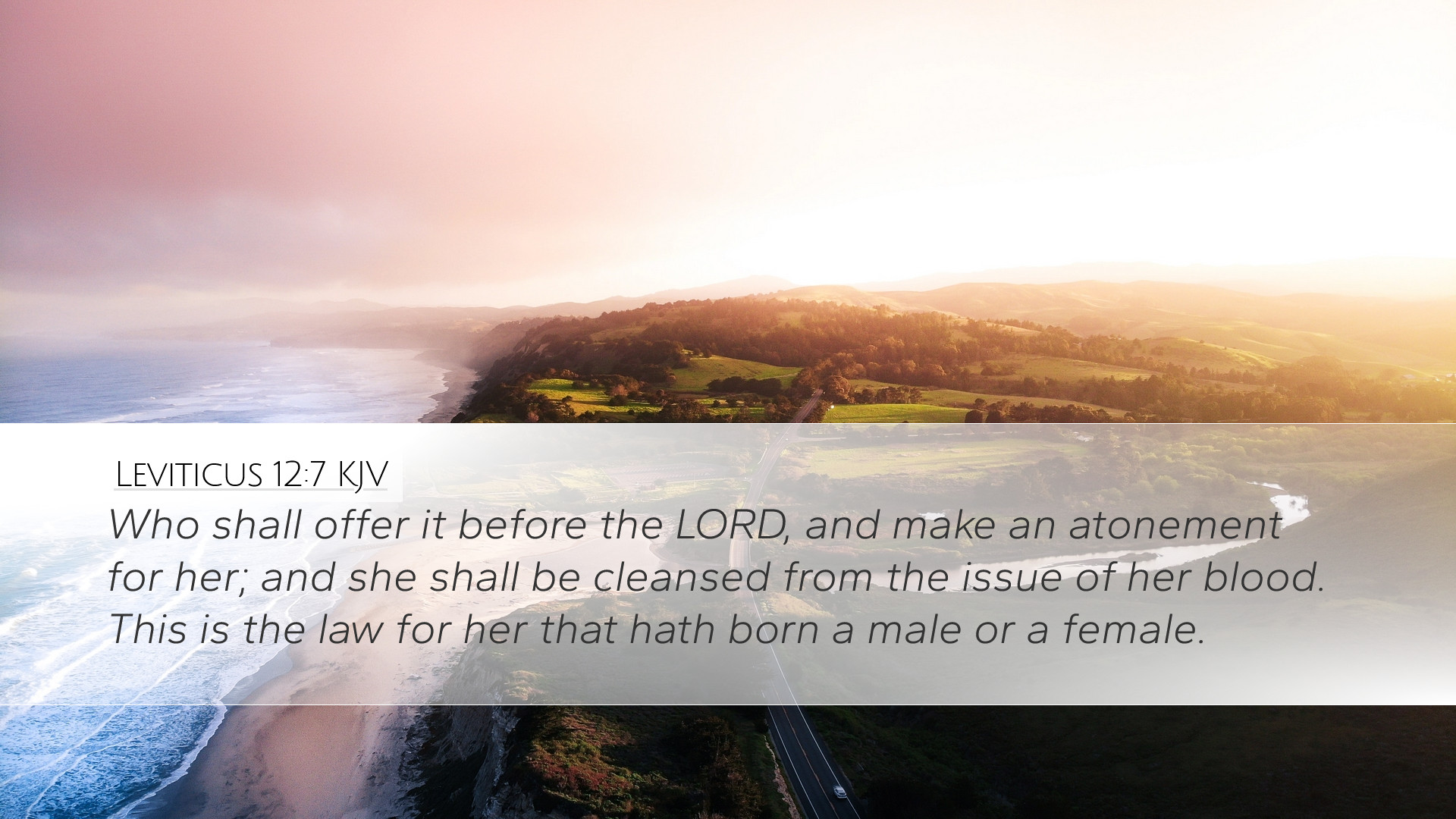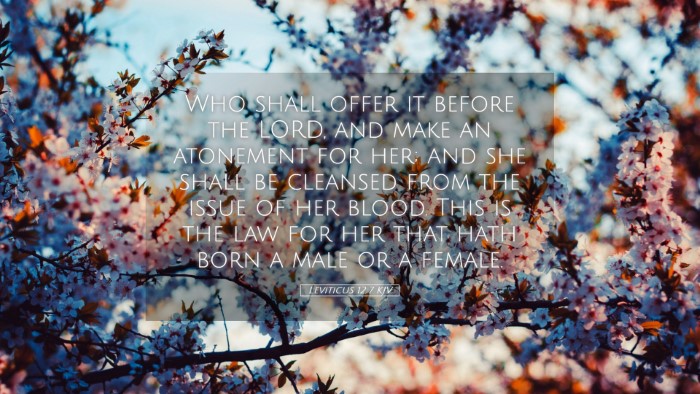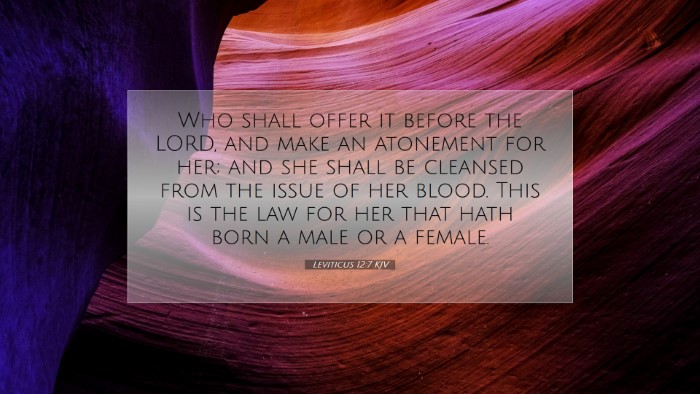Commentary on Leviticus 12:7
Bible Verse: "And he shall offer it before the Lord, and make an atonement for her; and she shall be cleansed from the issue of her blood. This is the law for her that hath born a male or a female."
Introduction
The passage of Leviticus 12:7 brings us into the ancient Mosaic Law concerning purification after childbirth. Within Israel's religious framework, the rites described are both a reflection of physical and spiritual reality. This commentary seeks to elucidate the theological significance, ceremonial implications, and the insight from various public domain commentators such as Matthew Henry, Albert Barnes, and Adam Clarke.
The Theological Significance
Divine Order and Holiness: The regulation surrounding childbirth, wherein specific offerings are required, underscores God's intention for cleanliness and holiness among His people. Matthew Henry notes that the sacrificial system was established to make atonement, which inherently reflects the atonement that Christ would ultimately fulfill.
Symbolism of New Life: The birth process is inherently tied to themes of life and death. Adam Clarke highlights that the blood signifies life but also the need for purification following the natural process of birth, symbolizing the transition from the unclean state towards being made holy through divine ordinance.
Ceremonial Implications
The act of offering a sacrifice, specifically in relation to childbirth, is central to the woman’s journey towards ceremonial cleanliness. Scripture does not attribute any sin to her condition as a new mother; rather, it acknowledges the natural processes where God's law maintains the sacredness of life.
- Purpose of the Offerings: Albert Barnes points out that the offerings serve dual purposes; they are acts of worship while facilitating the transition from a state of impurity to one of purity.
- Obligation of the Priest: Leviticus 12:7 indicates that the priest plays a pivotal role in making atonement, reinforcing the mediatorial aspects of priestly duties under the Old Covenant.
- Duration of Purification: The stipulated period of purification demonstrates God's understanding and compassion towards women during childbirth, emphasizing the care taken for their physical and spiritual health.
Pastoral and Practical Application
The relevance of Leviticus 12:7 extends beyond historical and ceremonial aspects; it affords profound implications for contemporary faith communities. Pastors and theologians can draw from these insights to counsel new mothers, emphasizing the sacredness of life and the divine purpose behind the struggles of motherhood.
Encouragement in New Life: Matthew Henry suggests that the birth of a child, whether male or female, holds equal value in the eyes of the Lord, encouraging congregations to celebrate life in all its forms.
The Call to Cleanliness: The instructions given can resonate with the Christian call to live holy lives. Just as the process of purification post-birth was significant, so too, spiritual cleanliness is essential for believers through repentance and faith.
Conclusion
Leviticus 12:7, while rooted in ceremonial law, provides timeless truths about atonement, holiness, and the value of life. As pastors, students, theologians, and scholars reflect on this text, may they uncover deeper understandings of God's grace and purpose woven throughout the complexities of life. The reflections of Matthew Henry, Albert Barnes, and Adam Clarke enrich our grasp of this passage, bridging the ancient commands with contemporary spiritual application.


